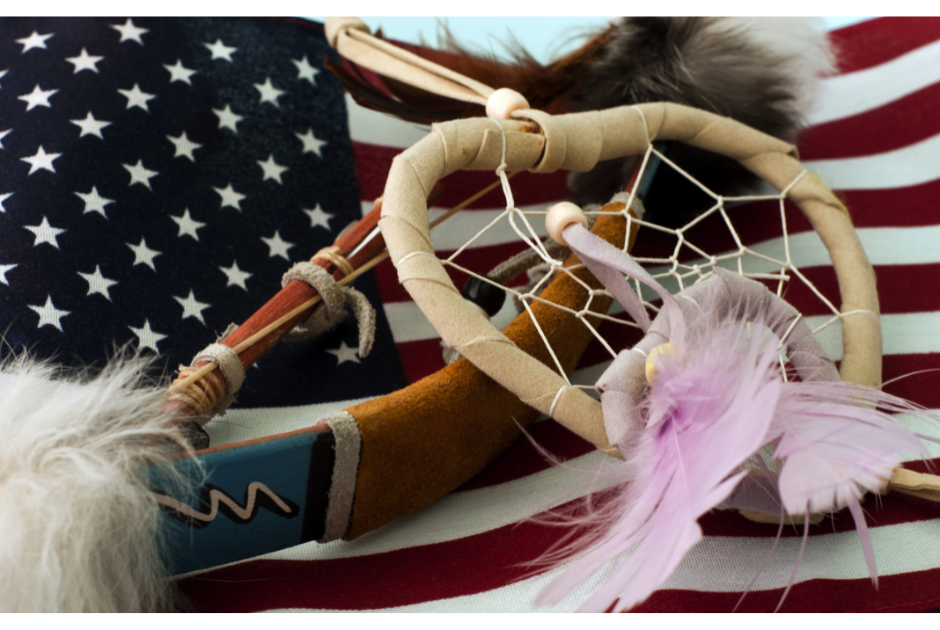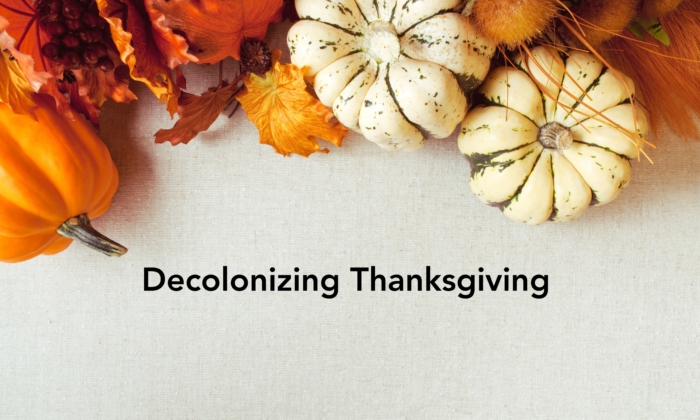Decolonizing The Teaching of Thanksgiving
November 8, 2023
Every November, the American tradition of Thanksgiving takes center stage, with images of pilgrims and Native Americans sharing a bountiful meal ingrained in our cultural consciousness. However, the way Thanksgiving is taught in schools often perpetuates harmful stereotypes and myths about Native peoples. As November marks the beginning of Native American Heritage month, the need to decolonize Thanksgiving education, providing a toolkit for parents and educators to approach this holiday with respect, accuracy, and inclusivity becomes necessary.
In many U.S. elementary schools, November marks a period of stereotypical and racist portrayals of Native peoples. Students engage in historically inaccurate activities, such as arts and crafts, books, lessons about a shared Thanksgiving meal, and even songs and plays featuring hand-crafted headdresses and vests. These portrayals present Native peoples in an ahistorical way and reinforce myths about colonial encounters. Most concerning is that these activities often reduce the diversity of Native cultures into a single, homogenized image, ignoring the rich tapestry of Indigenous communities and turning contemporary Native identities into mere costumes.
Decolonizing Thanksgiving means rejecting these myths and stereotypes, while engaging with Native perspectives that celebrate the diversity of Indigenous cultures and their presence in the 21st century. One way to do this is through children’s literature. Books like Sally Hunter’s “Four Seasons of Corn: A Winnebago Tradition” provide valuable insights into historical subsistence methods and demonstrate how these traditions continue today.

Toolkit:
1. Sample Letters to Send to Your Child’s School: These letters are valuable tools for parents who wish to advocate for a more inclusive approach to discussing Thanksgiving. One letter, written by Katrina Phillips, Ph.D., recognizes the harm caused by problematic classroom activities and suggests resources for teaching Native culture to children. [Read Sample Letters]
2. Resources for Educators and Families: This section provides a wealth of resources to teach about Thanksgiving and Native peoples in a socially responsible manner. It includes articles, lesson plans, and resources to help disrupt harmful stereotypes and provide students with accurate information.
- “Ten Ways to Make Your Thanksgiving about Social and Environmental Justice” by Eve Bratman (2016). [Read Article]
- “Teaching Thanksgiving in a Socially Responsible Way” by Amanda Morris (2015). [Read Article]
- “PreK-12 Social Studies Lesson Plans & Resources” from the Montana Office of Public Instruction. [Access Lessons]
- “Thanksgiving Teacher Resources” from the Archaeology Education Clearing House. [Access Resources]
- “Celebrate Indigenous Peoples’ Day in the Classroom with These Resources” by Mickey Kudia (2015). [Read Article]
- “A Racial Justice Guide to Thanksgiving for Educators and Families” by Border Crossers. [Access Resources]
3. Children’s Books about Native Peoples, Cultures, and Traditions: These books provide authentic portrayals of Native cultures and traditions, offering an alternative to the problematic narratives often found in schools.
- “Bowwow Powwow” by Brenda J. Child (Red Lake Ojibwe).
- “We Are Grateful: Otsaliheliga” by Traci Sorell (Cherokee).
- “The First Strawberries” by Joseph Bruchac (Abenaki).
- “Four Seasons of Corn: A Winnebago Tradition” by Sally M. Hunter (Ojibwe).
- “Rabbit Goes Duck Hunting: A Traditional Cherokee Legend” by Deborah L. Duvall.
- “Clambake: A Wampanoag Tradition” by Russell M. Peters (Wampanoag).
- “The Sacred Harvest: Ojibway Wild Rice Gathering” by Gordon Regguinti (Ojibwe).
- “Giving Thanks: A Native American Good Morning Message” by Jake Swamp (Mohawk).
- “Ininatig’s Gift of Sugar: Traditional Native Sugarmaking” by Laura Waterman Wittstock (Seneca).
- “Deconstructing the Myths of ‘The First Thanksgiving'” by Judy Dow (Abenaki).
- “American Indian Perspectives on Thanksgiving” from the National Museum of the American Indian.
Decolonizing Thanksgiving in schools is essential to promoting accurate, inclusive, and respectful education about Native peoples. By adopting a decolonizing approach and using the resources and tools in this toolkit, parents and educators can help ensure that the true history and diversity of Indigenous cultures are acknowledged, celebrated, and understood, while harmful stereotypes and myths are cast aside. It is our responsibility to offer a more accurate and respectful education that reflects the reality of Native American heritage.
Links from Medium: Decolonizing Thanksgiving: A Toolkit for Combating Racism in Schools




Leave a Reply
Want to join the discussion?Feel free to contribute!